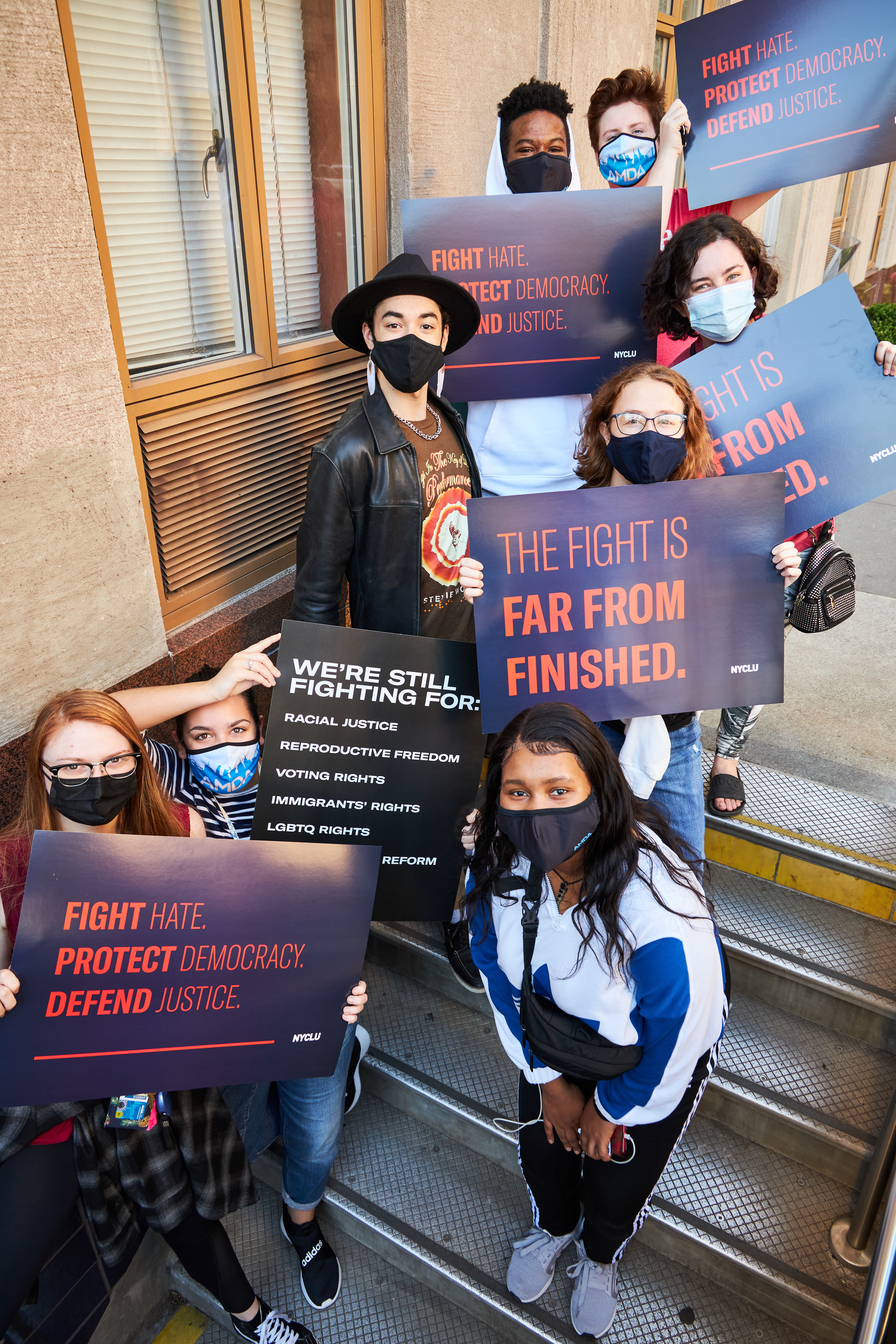Meeting the Moment: The 2024 Civil Rights Agenda for New York
As bold as the spirit of New York, we are the NYCLU.
Donate
© 2024 New York
Civil Liberties Union
Civil Liberties Union

THE NYCLU’S 2022 STATE LEGISLATIVE AGENDA
“Freedom doesn’t come like a bird on the wing…
Freedom, freedom is a hard-won thing
You’ve got to work for it, fight for it
Day and night for it
And every generation’s got to win it again.”
– From the song “Pass It On” by Millard Lampell and George Kleinsinger
